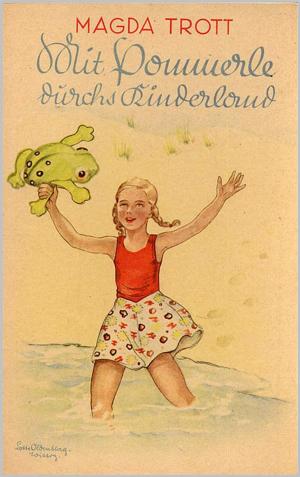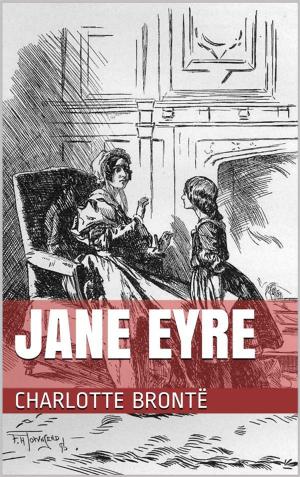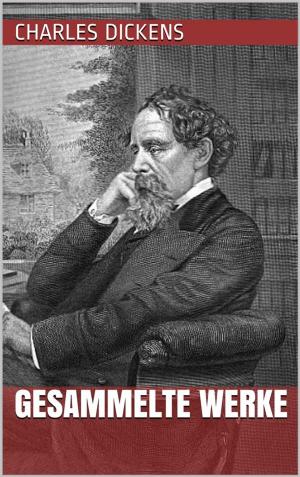La Case de l'oncle Tom / Uncle Tom's Cabin (Édition bilingue: français - anglais / Bilingual Edition: French - English)
Nonfiction, Reference & Language, Study Aids, ESL, Foreign Languages, Fiction & Literature, Classics| Author: | Harriet Beecher Stowe | ISBN: | 9788892559349 |
| Publisher: | Paperless | Publication: | February 27, 2016 |
| Imprint: | Language: | French |
| Author: | Harriet Beecher Stowe |
| ISBN: | 9788892559349 |
| Publisher: | Paperless |
| Publication: | February 27, 2016 |
| Imprint: | |
| Language: | French |
Cette édition contient la traduction française et le texte original en anglais.
« La Case de l'oncle Tom » (« Uncle Tom's Cabin ») est un roman de l'écrivaine américaine Harriet Beecher Stowe. Publié d'abord sous forme de feuilleton en 1852, il vaut le succès immédiat à son auteur. Le roman eut un profond impact sur l'état d'esprit général vis-à-vis des Afro-Américains et de l'esclavage aux États-Unis ; il est un des facteurs de l’exacerbation des tensions qui menèrent à la Guerre de Sécession. Stowe, née dans le Connecticut et pasteure à la « Hartford Female Academy », était une abolitionniste convaincue. Elle centre son roman sur le personnage de l'oncle Tom, un esclave noir patient et tolérant autour duquel se déroulent les histoires d'autres personnages, aussi bien esclaves que blancs. Ce roman sentimental dépeint la réalité de l'esclavage tout en affirmant que l'amour chrétien peut surmonter une épreuve aussi destructrice que l'esclavage d'êtres humains. «
"Uncle Tom's Cabin; or, Life Among the Lowly", is an anti-slavery novel by American author Harriet Beecher Stowe. Published in 1852, the novel "helped lay the groundwork for the Civil War", according to Will Kaufman. Stowe, a Connecticut-born teacher at the Hartford Female Seminary and an active abolitionist, featured the character of Uncle Tom, a long-suffering black slave around whom the stories of other characters revolve. The sentimental novel depicts the reality of slavery while also asserting that Christian love can overcome something as destructive as enslavement of fellow human beings. "Uncle Tom's Cabin" was the best-selling novel of the 19th century and the second best-selling book of that century, following the Bible. It is credited with helping fuel the abolitionist cause in the 1850s. In the first year after it was published, 300,000 copies of the book were sold in the United States; one million copies were sold in Great Britain. In 1855, three years after it was published, it was called "the most popular novel of our day." The impact attributed to the book is great, reinforced by a story that when Abraham Lincoln met Stowe at the start of the Civil War, Lincoln declared, "So this is the little lady who started this great war." The quote is apocryphal; it did not appear in print until 1896, and it has been argued that "The long-term durability of Lincoln's greeting as an anecdote in literary studies and Stowe scholarship can perhaps be explained in part by the desire among many contemporary intellectuals ... to affirm the role of literature as an agent of social change."
Cette édition contient la traduction française et le texte original en anglais.
« La Case de l'oncle Tom » (« Uncle Tom's Cabin ») est un roman de l'écrivaine américaine Harriet Beecher Stowe. Publié d'abord sous forme de feuilleton en 1852, il vaut le succès immédiat à son auteur. Le roman eut un profond impact sur l'état d'esprit général vis-à-vis des Afro-Américains et de l'esclavage aux États-Unis ; il est un des facteurs de l’exacerbation des tensions qui menèrent à la Guerre de Sécession. Stowe, née dans le Connecticut et pasteure à la « Hartford Female Academy », était une abolitionniste convaincue. Elle centre son roman sur le personnage de l'oncle Tom, un esclave noir patient et tolérant autour duquel se déroulent les histoires d'autres personnages, aussi bien esclaves que blancs. Ce roman sentimental dépeint la réalité de l'esclavage tout en affirmant que l'amour chrétien peut surmonter une épreuve aussi destructrice que l'esclavage d'êtres humains. «
"Uncle Tom's Cabin; or, Life Among the Lowly", is an anti-slavery novel by American author Harriet Beecher Stowe. Published in 1852, the novel "helped lay the groundwork for the Civil War", according to Will Kaufman. Stowe, a Connecticut-born teacher at the Hartford Female Seminary and an active abolitionist, featured the character of Uncle Tom, a long-suffering black slave around whom the stories of other characters revolve. The sentimental novel depicts the reality of slavery while also asserting that Christian love can overcome something as destructive as enslavement of fellow human beings. "Uncle Tom's Cabin" was the best-selling novel of the 19th century and the second best-selling book of that century, following the Bible. It is credited with helping fuel the abolitionist cause in the 1850s. In the first year after it was published, 300,000 copies of the book were sold in the United States; one million copies were sold in Great Britain. In 1855, three years after it was published, it was called "the most popular novel of our day." The impact attributed to the book is great, reinforced by a story that when Abraham Lincoln met Stowe at the start of the Civil War, Lincoln declared, "So this is the little lady who started this great war." The quote is apocryphal; it did not appear in print until 1896, and it has been argued that "The long-term durability of Lincoln's greeting as an anecdote in literary studies and Stowe scholarship can perhaps be explained in part by the desire among many contemporary intellectuals ... to affirm the role of literature as an agent of social change."















